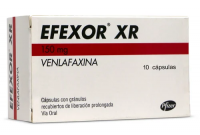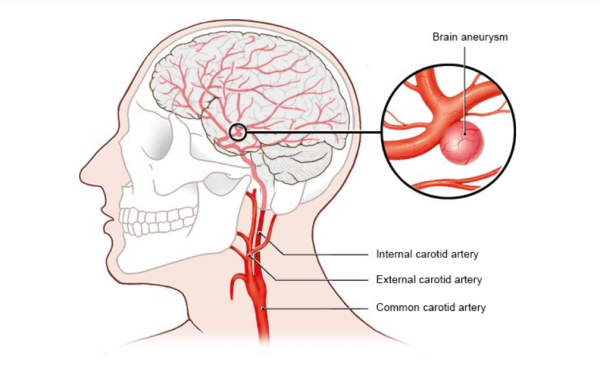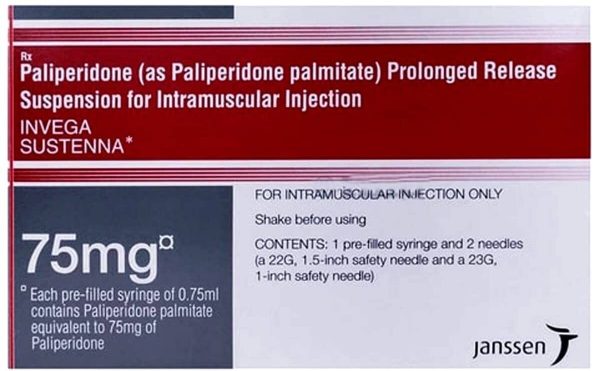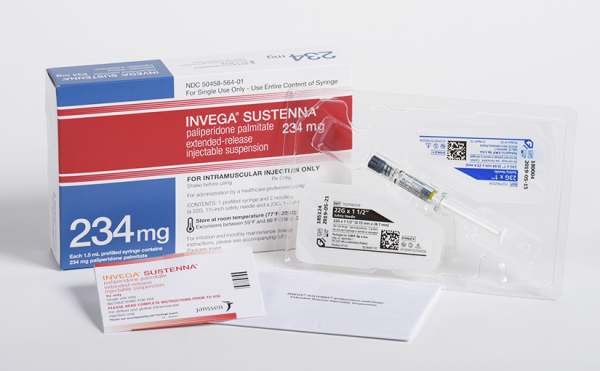3 min read
Usually, people take Venlafaxine by mouth with food daily as per their doctor’s instructions. While using this medication, some people might experience side effects. Due to this, tapering off Venlafaxine is possible after prolonged use of the drug. How to do it? Follow the explanation below.
What Is Venlafaxine?
Venlafaxine (Effexor) is an antidepressant drug for treating depression and other mental health conditions. Venlafaxine is a serotonin-norepinephrine reuptake inhibitor (SNRI). This drug works by helping to restore the balance of certain natural substances like serotonin and norepinephrine in the brain.
This medication is meant to improve your mood, increase your energy level, and restore your interest in everyday life. The drug has two versions: immediate-release (IR) and extended-release (ER). The IR variant is only available to people as a lower-cost generic product.
On the other hand, the ER variant, also known as Effexor XR, is available both as brand and generic products. Notably, the Effexor XR variant may leave sphere-like white shells that don’t dissolve when consumed to let the medication slowly release into your body.
Tapering Off Venlafaxine
If you are about to stop taking Venlafaxine, you should do it slowly and gradually. Abruptly tapering off the medicine can lead to withdrawal symptoms. Also, it is best to do it under your doctor’s supervision and instructions to avoid worsening the symptoms.
According to Alternative to Meds Center, here are some general guidelines to discuss with your healthcare provider. Remember, please never try tapering off Venlafaxine on your own.
1. Interdosing Strategy
Venlafaxine has an extremely short half-life, meaning that withdrawal symptoms are likely to occur after 2 to 13 hours if there’s a delay in the next dose. If required, a strategy of interdosing using smaller dosages throughout the day may ease the symptoms.
2. Longer Half-Life SNRI
The prescription of Venlafaxine in the US is in extended or delayed-release form (Effexor XR). When you cut an XR pill, the prolonged release function will not work effectively.
Therefore, you can speak to your doctor about other options, such as providing a liquid suspension form or cross-tapering. These options will make the drug have a longer half-life and could be a more taper-friendly strategy.
3. Design Your Tapering Schedule
When tapering off Venlafaxine, you can ask your physician to help plan a tapering schedule that is gentle enough for you. If your physician can’t do that, you can try to find a doctor who is more familiar with designing the schedule.
4. Diet Modification
For a successful tapering, you need to improve your diet by consuming all of these foods:
- Adequate fresh fruits and vegetables
- Proteins
- Food with omega-3 fatty acids
- Fermented foods
- Prebiotic and probiotic foods, like yogurt and sauerkraut
On the other hand, you also need to avoid all of these things to control your blood levels and decrease your vulnerability to depression:
- Sugars
- Refined carbs
- Caffeine
- Recreational marijuana use
5. Do Exercise
To decrease the chance of having withdrawal symptoms when tapering off Venlafaxine, you need to exercise. You can do these exercises provided below and other similar activities that are already proven to help reduce psychiatric symptoms and improve cognitive function, including:
- Regular daily outdoor walks, especially in the sunshine
- Yoga
- Qi Gong
- Tai Chi
6. Get Adequate Rest
If your symptoms are getting worse or you experience severe withdrawal, you can choose to stop the tapering. Otherwise, you can also speak to your physician about supplements that may help without increasing additional stress on the neurochemistry.
7. Do Counseling
During the process of tapering off the medication, you can do CBT and other forms of counseling when you are physically well enough to participate. This counseling may help you throughout the tapering process and is highly beneficial even after your Venlafaxine taper is complete.
Venlafaxine Side Effects
After you know tapering off Venlafaxine guidelines, let’s learn about the side effects that could lead people to stop taking the medication. The doctors chose to prescribe this medication to you because the benefit is greater than the risk of having side effects. Some of the side effects that often occur are:
- Drowsiness
- Constipation
- Dizziness
- Dry mouth
- Nausea
- Loss of appetite
- Nervousness
- Blurred vision
- Trouble sleeping
- Unusual sweating or yawning
- Increase blood pressure
In addition, this medication can also cause serious side effects. If you experience it, tell your doctor immediately so you can get the proper treatment. These severe side effects include:
- Shaking (Tremor)
- Muscle cramps or weakness
- Easy bleeding or bruising
- Decreased interest in sex
- Changes in sexual ability
Venlafaxine Withdrawal Symptoms
When tapering off Venlafaxine abruptly, you may experience withdrawal symptoms. The symptoms emerge between 8 to 12 hours after missing a dose and could remain for up to two weeks. Usually, your healthcare provider will decrease your dosage gradually to avoid withdrawal symptoms.
However, some people may still experience withdrawal symptoms despite not stopping the medication abruptly. There are reports of people experiencing “brain shivers” or “brain zaps” when they are late to take their Venlafaxine dose. They describe the sensation as brief and repetitive shock-like feelings inside the head.
On the contrary, others report that the phenomenon spreads to other body parts. The trigger of this sensation is by moving your eyes. In addition, the sensation is accompanied by disorientation, tinnitus, vertigo, and lightheadedness. Other symptoms of Venlafaxine withdrawal also include:
- Headache
- Restlessness
- High blood pressure
- Flu-like symptoms (fatigue and muscle pain)
- Nausea
- Sweating
- Dizziness
- Imbalance
- Abnormal sensory disturbances
The psychiatric or cognitive symptoms may also occur, such as:
- Confusion
- Psychosis
- Nightmares or excessive dreams
- Anxiety or depression worsening
- Narcolepsy (short-lived)
- Problems with concentration
- Cataplexy (loss of muscle tone triggered by strong emotions
Using Venlafaxine affects how your brain uses particular chemicals called neurotransmitters. Having those withdrawal symptoms when tapering off the medicine doesn’t mean addiction or dependency. Instead, these symptoms occur due to your brain’s readjustment after being affected by the medication.
Do You Understand The Way of Tapering Off Venlafaxine?
You are only tapering off Venlafaxine when you feel the medication doesn’t work anymore in treating your condition. Remember, always consult with your doctor and healthcare providers so you can get off from taking the medicine safely. Therefore, you can keep your body healthy and stay away from withdrawal symptoms.
Bagikan










